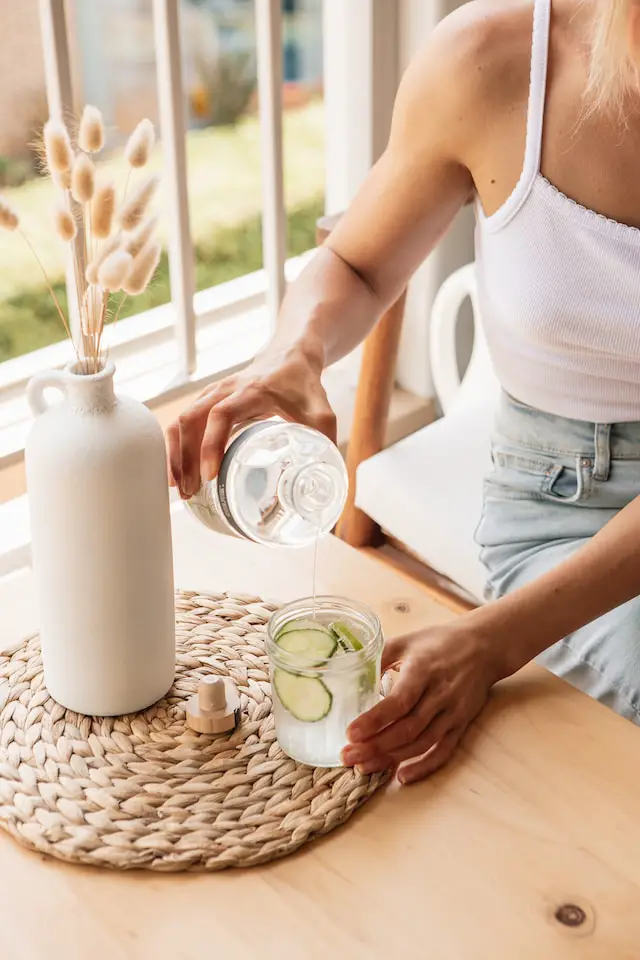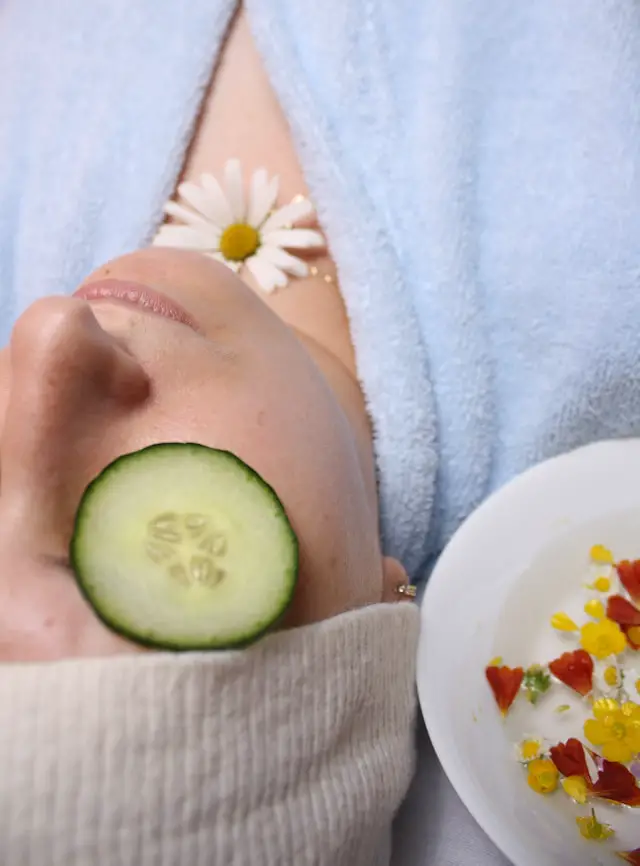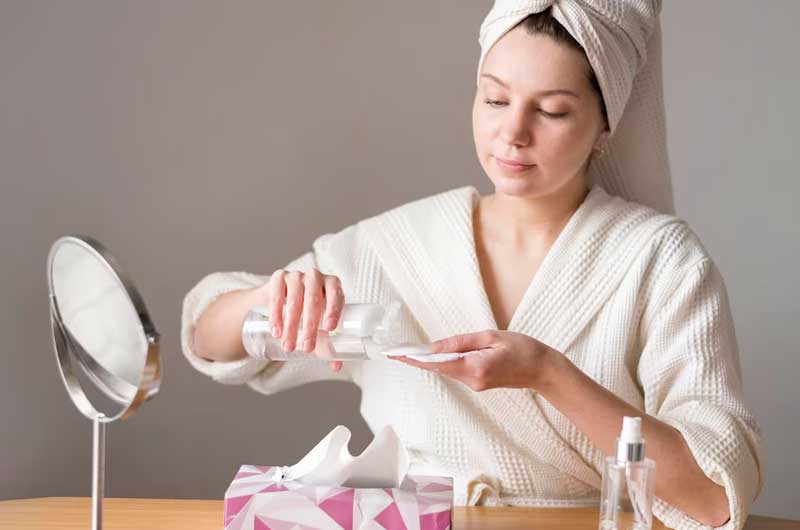Introduction
Skin hydration is essential for maintaining a healthy and radiant complexion. Our skin serves as a protective barrier, and proper hydration helps it function optimally. Unlock Your Skin’s Radiance! Discover the Ultimate Guide on How to Hydrate Skin for a Glowing Transformation. Get Started Now! Dehydration can lead to various skin issues, including tightness, flakiness, and a dull complexion. Understanding the skin’s moisture barrier and adopting a hydrating skincare routine are crucial for achieving plump, supple, and youthful-looking skin.
How to hydrate Skin (Factors Affecting Skin Hydration)
Environmental Factors
The environment plays a significant role in skin hydration. Weather and climate can affect the moisture levels in our skin, with extreme temperatures and low humidity leading to dryness. Additionally, pollution and UV radiation can damage the skin’s moisture barrier, causing dehydration.
Lifestyle Habits
Our lifestyle habits also impact skin hydration. Proper hydration starts from within, with an emphasis on maintaining a balanced diet and drinking an adequate amount of water. Moreover, quality sleep and stress management are crucial for overall skin health.
Identifying Dehydrated Skin
Common Signs of Dehydration
Dehydrated skin often exhibits tightness and discomfort. It may also appear flaky, with a lackluster complexion that lacks radiance.
Skin Type vs. Dehydrated Skin
It’s essential to differentiate between skin type and dehydrated skin. While dry skin lacks natural oils, dehydrated skin lacks water. Some may mistake oily or combination skin for being adequately hydrated when, in reality, it can still be dehydrated.
Building an Effective Hydration Routine
Cleansing for Hydration
Begin your hydration routine with the right cleanser. Opt for a gentle, hydrating cleanser that preserves the skin’s natural moisture. Consider incorporating double cleansing to ensure a thorough yet non-stripping cleanse.
Exfoliation and Hydration
Gentle exfoliation is essential for removing dead skin cells that can hinder hydration. Choose exfoliating products that also offer hydrating benefits, such as those containing hyaluronic acid or glycerin.
The Power of Facial Masks
Facial masks are an excellent way to provide an intense boost of hydration. Look for sheet masks or gel-based masks with hydrating ingredients like aloe vera, cucumber, or ceramides. For those who prefer natural options, there are several DIY mask recipes that can be customized to your skin’s needs.
Incorporating Facial Oils
Facial oils can be a game-changer for dry and dehydrated skin. These oils lock in moisture and provide nourishment. Opt for oils like argan, jojoba, or rosehip, which are suitable for various skin types.
Choosing the Right Moisturizer
Understanding Moisturizer Ingredients
Moisturizers contain various ingredients that cater to different skin needs. Look for humectants like hyaluronic acid, which draw and retain water, emollients like shea butter, which smooth the skin’s surface, and occlusives like petroleum jelly, which create a protective barrier to lock in moisture.
Tailoring Moisturizers to Your Skin Type
Each skin type has unique hydration requirements. Dry skin benefits from thicker, richer moisturizers, while oily skin benefits from lightweight, non-comedogenic options. Combination skin may require different products for different areas.
Nighttime vs. Daytime Moisturizing
Consider using different moisturizers for day and night. Daytime moisturizers should provide hydration and also include sun protection. Nighttime moisturizers can be more intensive, focusing on repair and rejuvenation.
Boosting Hydration with Serums and Toners
Hydrating Serums
Hydrating serums are packed with active ingredients that penetrate deeply into the skin. Look for serums containing hyaluronic acid, niacinamide, or vitamin C. Layering serums can maximize their benefits.
Nourishing Toner
Toners play a vital role in the hydration process. Opt for toners without alcohol and those containing soothing and hydrating ingredients like rose water or chamomile. For a personalized touch, consider making your own DIY toner.
Hydration from Within
The Role of Diet in Skin Hydration
Eating water-rich foods such as cucumbers, watermelon, and oranges can boost your skin’s hydration. Additionally, nutrients like omega-3 fatty acids and antioxidants play a crucial role in supporting skin health.
Importance of Hydration and Water Intake

Drinking an adequate amount of water is vital for maintaining overall hydration. The recommended daily water intake can vary based on factors like activity level and climate. Consistently staying hydrated throughout the day is essential for healthy skin.
Hydration for Specific Skin Concerns
Hydrating Mature Skin
Mature skin requires extra attention to combat the signs of aging. Look for anti-aging products that also provide deep hydration. Ingredients like peptides and retinol can help improve both hydration and skin texture.
Acne-Prone and Hydration
Acne-prone individuals might fear moisturizing, but it is essential even for oily and acne-prone skin. Choose non-comedogenic moisturizers that won’t clog pores and can provide the necessary hydration without aggravating acne.
Lifestyle Changes for Improved Skin Hydration
Sleep and Skin Health
Quality sleep is vital for skin health and hydration. During sleep, the body repairs and regenerates, making it an optimal time for skincare products to work their magic.
Stress Management and Its Impact on Skin

Stress can disrupt the skin’s barrier function and lead to dehydration. Practicing stress-reduction techniques, such as meditation and deep breathing, can help promote skin health.
Hydration Tips for Different Seasons
Summer Hydration
During the summer, the heat and sun exposure can be harsh on the skin. Opt for lightweight, oil-free moisturizers, and remember to wear sunscreen daily to protect your skin from UV damage.
Winter Hydration
In the winter, indoor heating and cold weather can cause dryness. Switch to richer moisturizers and consider using a humidifier to add moisture to the air.
Hydration from Within
The Role of Diet in Skin Hydration

Eating water-rich foods such as cucumbers, watermelon, oranges, and strawberries can significantly boost your skin’s hydration. These fruits and vegetables are not only delicious but also packed with vitamins and minerals that promote skin health. Incorporating foods high in omega-3 fatty acids, like fatty fish and flaxseeds, can also help maintain skin moisture and reduce inflammation.
Furthermore, consider adding foods rich in antioxidants, such as berries, spinach, and green tea, to your diet. Antioxidants protect the skin from oxidative stress caused by free radicals, helping to keep it hydrated and youthful-looking.
Importance of Hydration and Water Intake
One of the most natural and effective ways to hydrate your skin is by drinking plenty of water. Water is essential for maintaining overall health, and it directly impacts the appearance and health of your skin. When you’re dehydrated, your skin can become dry, tight, and less supple.
Ensure that you drink an adequate amount of water throughout the day. While individual water needs vary based on factors such as activity level and climate, a general guideline is to aim for around 8 cups (64 ounces) of water daily. Carry a reusable water bottle with you as a reminder to stay hydrated, and sip water regularly, even if you don’t feel thirsty.
Hydration-Boosting Infused Water
If plain water is not your favorite, try infusing it with natural flavors. Add slices of cucumber, lemon, lime, or mint leaves to your water for a refreshing and hydrating drink. These natural infusions not only make water taste better but also provide additional vitamins and minerals to support skin health.
The Benefits of Herbal Teas
Herbal teas can also contribute to skin hydration. Opt for caffeine-free herbal teas like chamomile, rooibos, or hibiscus. Not only do these teas provide hydration, but they also have soothing and antioxidant properties that benefit the skin.
Maintain a Balanced Diet
While focusing on hydrating foods and beverages, it’s essential to maintain a balanced diet overall. Avoid excessive consumption of sugary and processed foods, as they can lead to inflammation and compromise skin health. Instead, opt for a variety of nutrient-rich foods that support your skin and overall well-being.
By incorporating these natural hydration methods into your lifestyle, you can complement your skincare routine and achieve radiant, hydrated skin from the inside out.
Hydration Mistakes to Avoid
Overhydration and Its Consequences
Overhydration can lead to skin issues like clogged pores and a weakened moisture barrier. Listen to your skin’s needs and find the right balance of hydration for your skin type.
Using the Wrong Products
Avoid skincare products that contain harsh ingredients, such as alcohol and sulfates, as they can strip the skin of its natural oils and exacerbate dehydration.
Empowering Yourself in Achieving Hydrated Skin
Now that you have a comprehensive understanding of skin hydration and how to achieve it, it’s time to empower yourself to make informed choices for your skincare routine. Consistency is key, so stick to your hydration regimen, and your skin will thank you for it.
FAQ
1. How often should I apply moisturizer?
For most skin types, applying moisturizer twice daily, once in the morning and once at night, is sufficient. However, if you have extremely dry skin, you may consider applying a moisturizer more frequently as needed.
2. Can I use facial oils on oily skin?
Yes, you can use facial oils on oily skin. Contrary to popular belief, facial oils can actually help balance the skin’s natural oil production. Look for lightweight, non-comedogenic oils like jojoba or grapeseed.
3. Are DIY facial masks effective for hydration?
Yes, DIY facial masks can be effective for hydration, especially if you use ingredients like honey, yogurt, or aloe vera. However, it’s essential to ensure that you’re not allergic to any of the ingredients before using them on your face.
4. How do I know if my skin is dehydrated or just dry?
Dehydrated skin lacks water and appears dull and flaky. Dry skin lacks natural oils and may feel rough and tight. You can have both dry and dehydrated skin simultaneously, so it’s essential to address both concerns in your skincare routine.
5. Can stress really impact my skin’s hydration?
Yes, stress can disrupt the skin’s barrier function, leading to increased transepidermal water loss (TEWL) and dehydration. Managing stress through relaxation techniques can have a positive impact on your skin’s hydration and overall health.
Conclusion
Your journey to hydrated, glowing skin starts with understanding the importance of skin hydration and identifying the right products and lifestyle habits to achieve it. By following a personalized hydration routine and making informed choices, you can maintain optimal skin health and radiance. Remember, consistency is key, and with dedication, you can achieve the skin of your dreams.
Hope you get best idea about how to hydrate skin and please leave comments about this article.




1 Comment